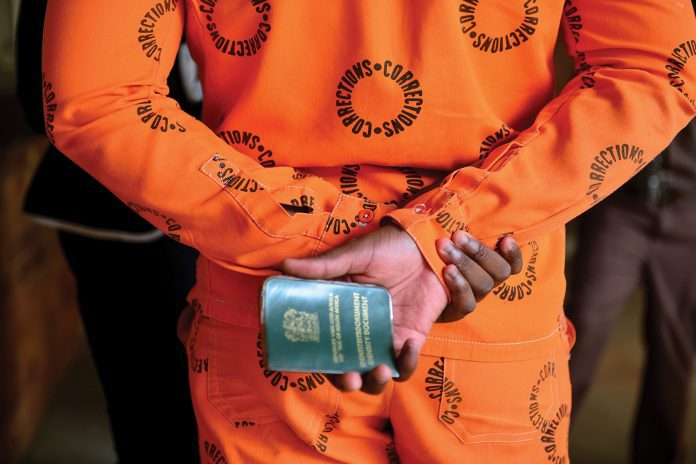Nearly 50 000 youth in South Africa are languishing in jail, running the risk of becoming a lost generation, the Department of Correctional Services has revealed.
Department spokesperson Chrispin Phiri said as of March 31, correctional centres in the country accommodated a total of 42 488 youth inmates (male and female).
“The highest numbers are seen between the ages of 27 to 35. The majority of crimes committed by these inmates are defined as crimes of need, such as house breaking and theft.
“Contact crimes are also dominating: murder and robbery,” he said.
“Many offenders have serious skills deficits that make it difficult for them to compete and succeed in the community – poor interpersonal skills, low levels of formal education, illiteracy or innumeracy, poor cognitive or emotional functioning, or a lack of planning and financial management skills.”
According to data released by the Judicial Inspectorate for Correctional Services (Jics) last year, there were 55 children in remand detention, 3 105 juveniles awaiting trial, 42 children sentenced, and 1 503 juveniles sentenced.
Jics statistics further show that between 2019 and 2020 there were 2 058 sentenced juveniles and 3 724 remanded juveniles, 65 sentenced children and 58 remanded children.
Sunday World reported last month that the country’s courts recorded a whopping 55% increase in the number of rape charges against children, who appeared in preliminary inquiries, compared to the previous reporting period.
The department said the calculation is based on the percentage contribution of rape to all the charges recorded during the 2020/21 reporting period compared to the corresponding 2019/20 period.
The department has identified six provinces that recorded the highest number of rape charges against children as the focal areas where interventions must be made.
These are Mpumalanga, North West, Limpopo, Eastern Cape, Free State and KwaZulu-Natal.
Phiri said one of the ways to make sure young people do not end up as part of a lost generation is to give them parole if they meet the criteria.
“For the past three financial years (2018-2021), the revocation rate of parolees and probationers stood at an average of 1%. For the 2020/21 financial year, the department released a total of 52 275 offenders into correctional supervision.
“Of that number, a total of 374 (0.72%) either violated their conditions, re-offended, absconded or lost their family support,” he said.
“There are parolees and ex-offenders who have been successfully integrated back into communities as law-abiding citizens, all due to the rehabilitation programmes and training skills offered by the department.
“Many parolees and ex-offenders have established their own businesses. Some have even hired other parolees and unemployed community members.”
Follow @SundayWorldZA on Twitter and @sundayworldza on Instagram, or like our Facebook Page, Sunday World, by clicking here for the latest breaking news in South Africa. To Subscribe to Sunday World, click here



